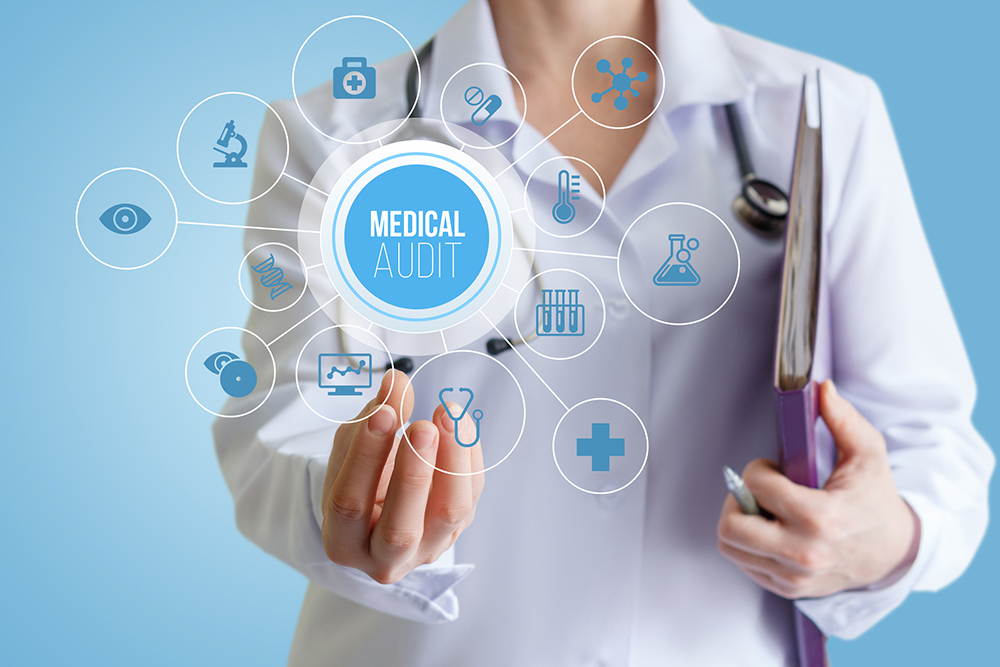
Medical billing is a critical aspect of healthcare administration, ensuring that healthcare providers are accurately compensated for their services. A medical billing audit plays a crucial role in maintaining the integrity of the billing process, ensuring compliance with regulations, and identifying areas for improvement. This article delves into the intricacies of medical billing audits, their importance, the process involved, and best practices for conducting effective audits.
What is a Medical Billing Audit?
A medical billing audit is a systematic review of healthcare providers’ billing records and processes. It aims to ensure that medical claims are accurate, complete, and compliant with applicable regulations and payer requirements. Audits can be conducted internally by the healthcare provider’s staff or externally by third-party auditors.
Importance of Medical Billing Audits
Ensuring Compliance
One of the primary reasons for conducting medical billing audits is to ensure compliance with federal, state, and payer-specific regulations. Non-compliance can result in severe penalties, including fines, loss of contracts, and even criminal charges in cases of fraud.
Reducing Billing Errors
Billing errors can lead to significant financial losses for healthcare providers. Audits help identify and rectify common errors such as incorrect coding, duplicate billing, and missing information, thereby reducing claim denials and improving revenue cycle management.
Enhancing Operational Efficiency
Regular audits can highlight inefficiencies in the billing process, providing opportunities for improvement. By streamlining billing procedures, healthcare providers can reduce administrative costs and improve overall operational efficiency.
Preventing Fraud
Medical billing fraud is a significant concern in the healthcare industry. Audits serve as a deterrent to fraudulent activities by ensuring that billing practices are transparent and accountable.
Types of Medical Billing Audits
Internal Audits
Internal audits are conducted by the healthcare provider’s own staff. These audits are usually more frequent and can be less formal than external audits. Internal audits are valuable for ongoing monitoring and immediate corrective actions.
External Audits
External audits are conducted by independent third-party auditors. These audits provide an objective assessment of the billing processes and are often more comprehensive. External audits are typically required by regulatory bodies or payers.
The Medical Billing Audit Process
Planning and Preparation
The first step in a medical billing audit is thorough planning. This involves defining the audit scope, objectives, and criteria. Key considerations include the time frame to be audited, the types of services to be reviewed, and the specific regulations and guidelines to be followed.
Data Collection
Data collection is a critical phase in the audit process. Auditors gather relevant billing records, including patient charts, medical codes, claim forms, and payment records. Ensuring the completeness and accuracy of the data is essential for a successful audit.
Data Analysis
During data analysis, auditors review the collected records to identify discrepancies and potential issues. This involves verifying the accuracy of medical codes, ensuring that services billed were actually provided, and checking for compliance with regulations.
Reporting
After analyzing the data, auditors compile their findings into a detailed report. The audit report typically includes an overview of the audit scope and objectives, a summary of findings, identified issues, and recommendations for corrective actions.
Corrective Actions
The final phase of the audit process involves implementing corrective actions based on the audit findings. This may include staff training, process improvements, and system updates to address identified issues and prevent future occurrences.
Best Practices for Conducting Medical Billing Audits
Regular Audits
Conducting regular audits is crucial for maintaining the integrity of the billing process. Regular audits help identify and address issues promptly, reducing the risk of non-compliance and financial losses.
Comprehensive Training
Ensuring that billing staff are well-trained in coding and billing practices is essential for minimizing errors. Regular training sessions and updates on regulatory changes can significantly improve billing accuracy.
Utilize Technology
Leveraging technology can enhance the efficiency and effectiveness of medical billing audits. Automated audit tools can streamline data collection and analysis, making the audit process more efficient and accurate.
Focus on High-Risk Areas
Identifying and prioritizing high-risk areas can make audits more effective. High-risk areas may include services with high reimbursement rates, complex medical procedures, and areas with a history of frequent errors.
Maintain Transparency
Transparency is key to a successful audit process. Ensuring open communication between auditors and staff can help in understanding the audit findings and implementing corrective actions effectively.
Challenges in Medical Billing Audits
Complexity of Regulations
The ever-changing landscape of healthcare regulations can make medical billing audits challenging. Staying updated with the latest regulations and ensuring compliance requires continuous effort and resources.
Data Accuracy
Ensuring the accuracy and completeness of billing records can be difficult, especially for large healthcare providers with extensive records. Inaccurate data can lead to incorrect audit findings and recommendations.
Resistance to Change
Implementing corrective actions based on audit findings can sometimes face resistance from staff. Addressing this resistance through effective communication and training is crucial for successful implementation.
Conclusion
Medical billing audits are essential for ensuring the accuracy and integrity of the billing process in healthcare. By identifying and addressing errors, ensuring compliance, and preventing fraud, audits play a crucial role in safeguarding the financial health of healthcare providers. Regular audits, comprehensive training, and the use of technology can significantly enhance the effectiveness of the audit process. Despite the challenges, a well-conducted medical billing audit can provide valuable insights and drive continuous improvement in billing practices.

